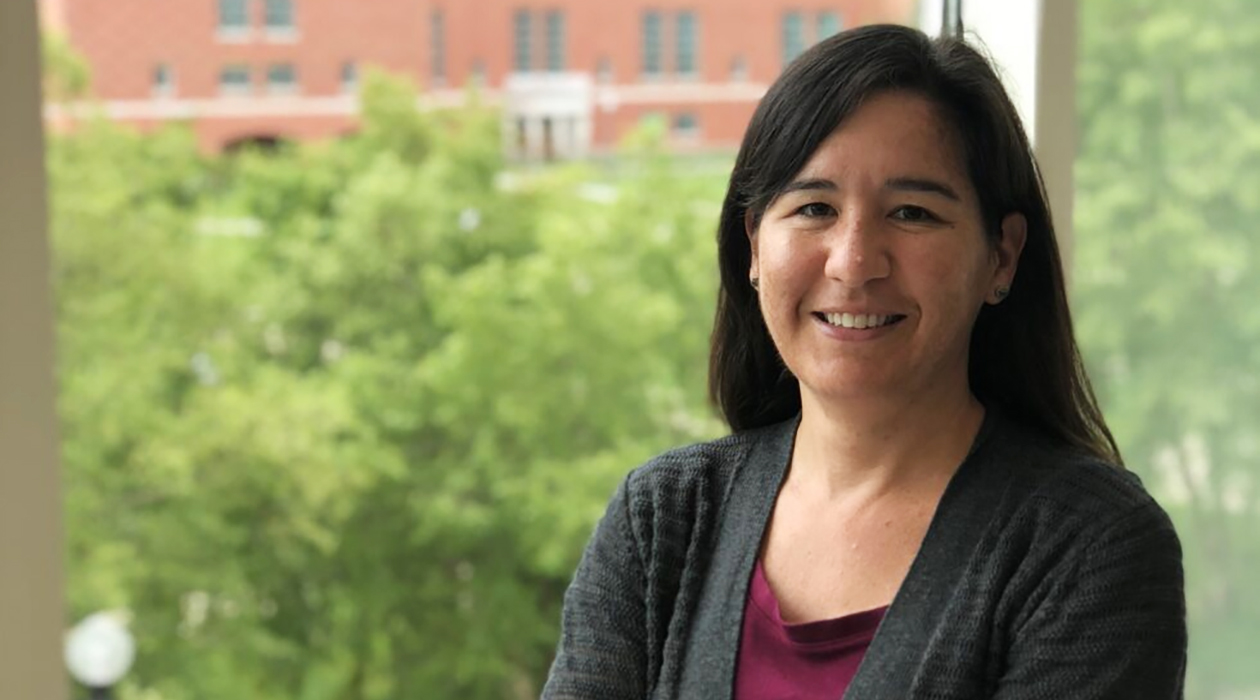Shannon Sirk wins NIH Trailblazer Award

Assistant Professor of Bioengineering Shannon Sirk / L. Brian Stauffer
Professor Shannon Sirk (MME) received the NIH NIBIB R21 Trailblazer Award for her ongoing work in engineering both microbes and antibodies for human therapies. This three-year, $400,000 award is designed to help engineers pursue research programs at the interface of the life sciences, engineering, and physical sciences.
The human body contains a huge variety of different bacteria and other organisms, each with its own purpose. When helpful and harmful bacteria live in the same environments, it can be very difficult to attack one and preserve the other. Antibiotics, for example, are highly effective at destroying harmful bacteria–but often come at a cost.
“Antibiotics are wonderful,” said Sirk. “But the reason why gastrointestinal distress is one of the main side effects of antibiotics is because they completely obliterate all of the body’s natural native bacteria that live in the gut.”
While most digestive issues resolve themselves within a few days, a pathogen called Clostridium difficile, or C diff, can make the situation much more dangerous. C diff is commonly encountered in hospital settings, where patients are frequently given antibiotics that destroy their native microbiota and allow the C diff to take over and cause serious intestinal damage. Getting rid of C diff can be very challenging, since additional antibiotics only keep the cycle of C diff infection going. To address this limitation, Sirk is developing an approach that replaces antibiotics with antibodies.
“Antibodies are proteins that can be engineered to react to very specific targets,” said Sirk. “If you give somebody an antibody that can target a C diff toxin, you can have a much better treatment that doesn't have all of the collateral damage that comes with antibiotics.”
Using antibodies sounds like the obvious solution for any disease. The problem is that these proteins are much more expensive to produce than antibiotics, so they are used less frequently in clinical settings. That’s where the idea of engineering microbes to function as living antibody production factories comes into play.
“Our whole system is geared toward the idea that you can circumvent those high antibody production costs by having engineered microbes produce these therapeutic antibodies from within the body, right at the site of disease,” said Sirk. “Let's say you're going into the hospital. We aim to engineer these living therapeutic microbes that you can take in a probiotic capsule. The bacteria will reach your intestines and start secreting the protective antibodies directly into the gut, where it’s needed. Currently the only way to achieve this is to administer purified antibodies by an IV infusion, which is too expensive to be clinically useful. So our goal is to protect people who know they will be in a setting that has high C diff risk, such as a hospital, but also to treat people who have already been exposed to this dangerous pathogen.”
One of the many benefits of these engineered microbes is that they will continue reproducing on their own, meaning that after receiving a dose of these engineered probiotics, they will provide a self-sustaining, persistent dose of the therapeutic antibodies.
The idea of engineering microbes itself is not new, but as Sirk and her students explore new applications in microbial-based therapeutic delivery, they are developing increasingly sophisticated methods to manipulate and optimize these living therapeutics and their antibody-based cargo.
“What we're doing here will lay the foundation for a number of other engineering goals we want to pursue,” Sirk said. “Other diseases in the gut, other diseases out of the gut, in the respiratory tract, skin, vagina, or anywhere there's already microbes that naturally inhabit the niche, you can take them out, engineer them to do something useful, and put them back in to achieve some therapeutic or even environmental goal. Everything we learn as we're going through this process is going to help us refine, improve, and expand our approach.”
Receiving the Trailblazer Award was extremely exciting, said Sirk, but she emphasized that this was a shared success.
“My students really drive this,” she said. “I put in the effort to write and submit and resubmit, so winning the award feels great. But my students are the ones that are paying attention to the data coming in, asking the right questions, and reading the right papers. The students’ contributions are key to this work.”
